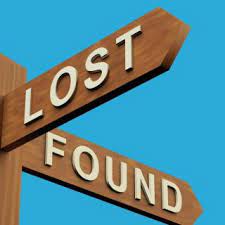
The Jewish month of Elul has begun. Days are shortening noticeably. Emails about the High Holy Days are flying. Ritually, daily shofar blasts pierce protective layers and call us to renewed attention. The season of teshuvah is here.
What is teshuvah? English-language equivalents include "return" to "repent." This impulse asks us to "return" to our highest selves and best spiritual lives. We do so physically in community (it's "back to shul" time), and figuratively by introspection, "repenting" for "sins" (I prefer Hebrew's חטא / het – an archery term for "missed marks"), and doing the sometimes difficult work of repairing and forgiving.
This week's Torah portion, Ki Teitzei, presses us to back these words with action that shows up in the world – because hanging in the balance is whether we're really here at all. (Keep reading for bonus content for animal lovers.)
What is teshuvah? English-language equivalents include "return" to "repent." This impulse asks us to "return" to our highest selves and best spiritual lives. We do so physically in community (it's "back to shul" time), and figuratively by introspection, "repenting" for "sins" (I prefer Hebrew's חטא / het – an archery term for "missed marks"), and doing the sometimes difficult work of repairing and forgiving.
This week's Torah portion, Ki Teitzei, presses us to back these words with action that shows up in the world – because hanging in the balance is whether we're really here at all. (Keep reading for bonus content for animal lovers.)
At first, the context of Torah's call seems far less lofty – returning lost animals (Deut. 22:1-3):
| לֹא־תִרְאֶה אֶת־שׁוֹר אָחִיךָ אוֹ אֶת־שֵׂיוֹ נִדָּחִים וְהִתְעַלַּמְתָּ מֵהֶם הָשֵׁב תְּשִׁיבֵם לְאָחִיךָ: וְאִם־לֹא קָרוֹב אָחִיךָ אֵלֶיךָ וְלֹא יְדַעְתּוֹ וַאֲסַפְתּוֹ אֶל־תּוֹךְ בֵּיתֶךָ וְהָיָה עִמְּךָ עַד דְּרֹשׁ אָחִיךָ אֹתוֹ וַהֲשֵׁבֹתוֹ לוֹ: וְכֵן תַּעֲשֶׂה לַחֲמֹרוֹ וְכֵן תַּעֲשֶׂה לְשִׂמְלָתוֹ וְכֵן תַּעֲשֶׂה לְכָל־אֲבֵדַת אָחִיךָ אֲשֶׁר־תֹּאבַד מִמֶּנּוּ וּמְצָאתָהּ לֹא תוּכַל לְהִתְעַלֵּם | Do not see yet ignore your fellow's ox or sheep straying: surely return it to your fellow. If your fellow is not close to you, or you do not know who [its owner] is, bring it home and it will stay with you until your fellow seeks it: [then] you must return it. Do the same with their donkey and do the same with their garment. Do the same with anything lost that your fellow loses and you find: you cannot ignore. |
Torah being Torah, her Hebrew words are three-dimensional – far deeper than their English-language translations. In green are the words about returning what's lost: that Hebrew root is the same as teshuvah. We learn that the essence of teshuvah is repairing what's lost – not just animals but also equanimity and safety after hurt, emotional closeness after a spat, public standing after false accusation or embarrassment, and relationships after being frayed.
Teshuvah asks us to see what someone has lost – including and especially where our own action or inaction played a part – and make repair if we can. Even more, if they don't know it's lost, we're to take it into our homes – as close to us as we can – until the time is right. Teshuvah is about deep awareness and taking responsibility. (To be sure, teshuvah doesn't require us to unsafely expose ourselves to abuse or vindicate abuse.)
The red words go even deeper. In English they call us not to ignore what's lost (and, by extension, the one who lost). In Hebrew, the root is עלם, source of the words "world" (olam / עולם), "forever" (l'olamim / לעולמים) and "hidden" (ne'elam / נעלם). Torah's particular word here, התעלם, means not only to ignore but also to hide oneself – in essence, to disappear.
Putting these two ideas together, we learn the teshuvah journey of returning what's lost – another's possessions, pride, peace or purpose, as well as our own – demands that we not hide ourselves. It means that, by definition, if we don't return, then we're hiding. We're hiding from a situation that needs teshuvah. We're hiding from our best selves by avoiding the issue and turning a blind eye. And therefore – loaded! – we're also hiding from God.
In this understanding, teshuvah is about being fully present to ourselves, each other and the Source of holiness. The opposite of teshuvah is not being fully present to any of them. We might as well not really be here
And, it turns out, because of how human consciousness works, we can't omit any one of the three – ourselves, each other and God / holiness – without in some way omitting all of them. Psychologists and neurobiologists show that we humans tend to suck at being selectively unaware. If we defend against one emotion, we tend to diminish others also; if we step back from one situation or context, often there are ripple effects as to others. (That's why, during the pandemic lockdown, folks were prone to feel "blah," disconnected not just physically from people but also most everything else. Experts gave this malaise a name: languishing.)
But our ancestors knew this truth long before Sigmund Freud and MRIs. Some 900 years ago, Avraham ben Meir ibn Ezra, one of Judaism's great early Spanish rationalists, read our Torah text to say not that we mustn't ignore or hide but rather that we can't – that literally, we humans are unable ultimately to turn that blind eye to teshuvah. If we're paying attention, the call is too powerful to ignore or hide from. And if we turn a blind eye, it'll keep tugging at us, tearing at our lives until we return our focus and realign our actions with our best selves.
A corollary: We can't get right with God / holiness until we first get right with each other and ourselves. That's why tradition calls us to do teshuvah first for missed marks and the lost rightness bein adam l'haveiro (between people), and only then seek full teshuvah bein adam la-Makom (between us and the Presence we call God / holiness). Put another way, once we become fully present, the Presence is, too.
And as we become more fully present and repair what we can – as we turn into this season's teshuvah journey – naturally there's no reason to hide. Indeed, we won't be able to hide because our light will shine. As tradition's Yom Kippur haftarah proclaims (Isaiah 58:8-12):
Teshuvah asks us to see what someone has lost – including and especially where our own action or inaction played a part – and make repair if we can. Even more, if they don't know it's lost, we're to take it into our homes – as close to us as we can – until the time is right. Teshuvah is about deep awareness and taking responsibility. (To be sure, teshuvah doesn't require us to unsafely expose ourselves to abuse or vindicate abuse.)
The red words go even deeper. In English they call us not to ignore what's lost (and, by extension, the one who lost). In Hebrew, the root is עלם, source of the words "world" (olam / עולם), "forever" (l'olamim / לעולמים) and "hidden" (ne'elam / נעלם). Torah's particular word here, התעלם, means not only to ignore but also to hide oneself – in essence, to disappear.
Putting these two ideas together, we learn the teshuvah journey of returning what's lost – another's possessions, pride, peace or purpose, as well as our own – demands that we not hide ourselves. It means that, by definition, if we don't return, then we're hiding. We're hiding from a situation that needs teshuvah. We're hiding from our best selves by avoiding the issue and turning a blind eye. And therefore – loaded! – we're also hiding from God.
In this understanding, teshuvah is about being fully present to ourselves, each other and the Source of holiness. The opposite of teshuvah is not being fully present to any of them. We might as well not really be here
And, it turns out, because of how human consciousness works, we can't omit any one of the three – ourselves, each other and God / holiness – without in some way omitting all of them. Psychologists and neurobiologists show that we humans tend to suck at being selectively unaware. If we defend against one emotion, we tend to diminish others also; if we step back from one situation or context, often there are ripple effects as to others. (That's why, during the pandemic lockdown, folks were prone to feel "blah," disconnected not just physically from people but also most everything else. Experts gave this malaise a name: languishing.)
But our ancestors knew this truth long before Sigmund Freud and MRIs. Some 900 years ago, Avraham ben Meir ibn Ezra, one of Judaism's great early Spanish rationalists, read our Torah text to say not that we mustn't ignore or hide but rather that we can't – that literally, we humans are unable ultimately to turn that blind eye to teshuvah. If we're paying attention, the call is too powerful to ignore or hide from. And if we turn a blind eye, it'll keep tugging at us, tearing at our lives until we return our focus and realign our actions with our best selves.
A corollary: We can't get right with God / holiness until we first get right with each other and ourselves. That's why tradition calls us to do teshuvah first for missed marks and the lost rightness bein adam l'haveiro (between people), and only then seek full teshuvah bein adam la-Makom (between us and the Presence we call God / holiness). Put another way, once we become fully present, the Presence is, too.
And as we become more fully present and repair what we can – as we turn into this season's teshuvah journey – naturally there's no reason to hide. Indeed, we won't be able to hide because our light will shine. As tradition's Yom Kippur haftarah proclaims (Isaiah 58:8-12):
"Then your light will split the darkness like dawn, and your healing will spring up quickly.... When you call, God will answer. When you cry out, God will say, 'I am here....' Your light will shine in the darkness, and even your gloom will be like noonday."
* * *
BONUS CONTENT
JEWISH TRIVIA FOR ANIMAL LOVERS
* * *
BONUS CONTENT
JEWISH TRIVIA FOR ANIMAL LOVERS

Torah's context of returning lost animals has extra significance for this entrance gate into our Season of Meaning. In classical Judaism, the first day of Elul is the "New Year of the Animals," when each animal was counted another "year" old for spiritual purposes. (It's easier to remember if every puppy, chicken and cow has a 1 Elul birthday.) If that sounds weird, historical Judaism honored not one "new year" but four – one each for creation (our Rosh Hashanah), trees (Tu b'Shevat), a monarch's regnal duration, and animals (Mishnah, Rosh Hashanah 1:1).
So Torah launches Elul with a hidden reference to the New Year of the Animals, to prime our awareness that our own New Year, and with it the culmination of teshuvah journey – is up next.
Oh yeah, and lots of warm fuzzies.
So Torah launches Elul with a hidden reference to the New Year of the Animals, to prime our awareness that our own New Year, and with it the culmination of teshuvah journey – is up next.
Oh yeah, and lots of warm fuzzies.

 RSS Feed
RSS Feed